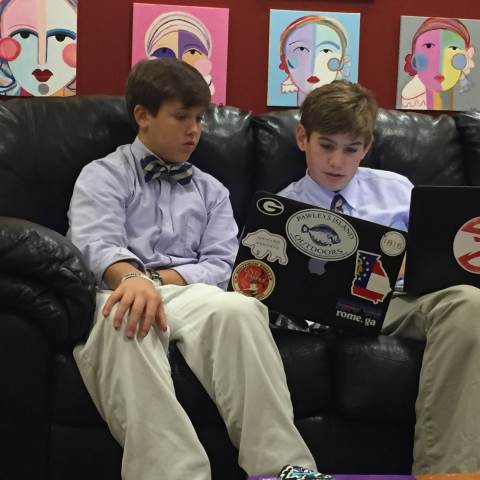

Frustration. Groans. Grimaces. Sighs. Cheers. Heads bent close together. Intent stares at the computer.
These were some of the signs of learning going on in Physical Science this week. How is this different from any other day? Students were being introduced to a new language. A language that is critical to the world that our children are going to grow up in—coding.
For the last two years, my students and I have participated in the Hour of Code with Code.org. The goal is to help students, especially girls, get introduced to computer programming and what can be accomplished with simple programming skills.
Shattering pre-conceived notions is one aspect of this week that I find most exciting, but don't take my word for it.
Frances Fields said that before she tried it, “I thought that coding was boring and difficult because it was just typing long lines that were hard to understand.” Frank Manning discovered that, “It is almost like solving a puzzle and then playing a game. There is so much trial and error in coding that it is fun.”
Many of our students discover that they have to look at things a little differently in order to be successful. Sam Welborn realized that “a benefit that coding has is that it can help you stop and think through and break down a problem.” Hampton Watkins felt that these skills have more benefits beyond programming: “Coding can help you with frustration to where if you are struggling with something, you’ll think about it differently, which could help you out in life. It could also help you use the computer better and think outside of the box."
Applying this mindset to the everyday process of learning is important. Cade Brock spoke of his mindset and its application: “To continue coding, I must remain in that same mindset of no matter if you fail, keep trying.”
“When I first started coding, I got very frustrated," shared Emily Prusakowski. "You need to have a mindset of not giving up, and keep trying different things. The benefit from coding is that you know how computers and technology work; that helps because technology is in everyday life."
For more information, visit Code.org.